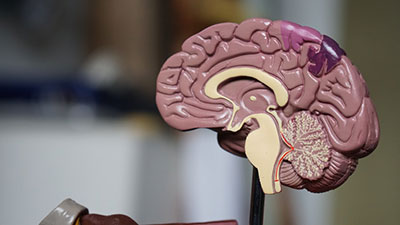Traumatic Brain Injury - Causes, Symptoms and Treatments
Neurological trauma refers to an injury to the brain, spine or nervous system. This type of injury is typically caused by an impact to the skull, spine or other parts of the body. The common reasons for this injury include a blow to the head or back, a sudden movement or jerk, strong and rapid acceleration or deceleration or being assaulted. The typical causes of this kind of trauma are:

- Falling, usually from a significant height such as from a ladder or down a flight of stairs.
- Vehicle accidents especially in the case of two-wheelers where the driver and/or pillion-rider are not wearing a helmet.
- Sports injuries from being hit by a ball, bat or racquet, falling while running and strong and sudden bodily contact with another player.
- Explosions that result in blast injuries. While these are more common among military personnel, civilians are increasingly at risk in the form of construction accidents, terrorist attacks and so on.
The Symptoms
The symptoms of neuro trauma are many because the condition can have wide-ranging physical and psychological effects on the patient. The signs of this condition could appear immediately or even after days or weeks have passed. The most common ones are:
- Altered states of consciousness ranging from confusion to being in a coma or vegetative state.
- Physical problems like seizures, headaches, vertigo, fluid collecting in the brain, infections and blood vessel damage.
- Cognitive problems in the form of memory loss, lack of concentration, loss of judgment and difficulty in learning.
- Communication problems such as difficulty in speaking or writing, inability to participate in group discussions, etc.
- Behavioural problems like loss of self-control, violent physical or verbal outbursts, depression, anxiety, mood swings, insomnia and others.
These are just a few common symptoms. There are many more that could occur.
Also Read: Never Ignore Head Injuries
The Treatment
The treatment for a neuro trauma will depend on the exact type of injury and its seriousness. In mild cases, rest and medication along with observation to monitor the patient’s recovery to ensure no complications arise, may be enough. In severe cases, emergency treatment will be required to make sure the patient is getting enough oxygen, has a normal blood pressure and also to make sure the injured area is stabilized to prevent further damage. Once the patient has been stabilized, a detailed examination will be conducted after which a detailed diagnosis will be given. Based on the diagnosis, a treatment plan that may include surgical intervention will be devised. In most cases, physiotherapy will be required to regain motor skills and movement.
Neuro traumas are serious medical conditions and must not be taken lightly. In many cases, the onset of symptoms may be delayed. When a case of neuro trauma is suspected, the injured person must be taken without any delay to a hospital that is equipped with facilities and medical specialists to diagnose the problem and provide the right course of treatment.
- Sep 25, 2020
